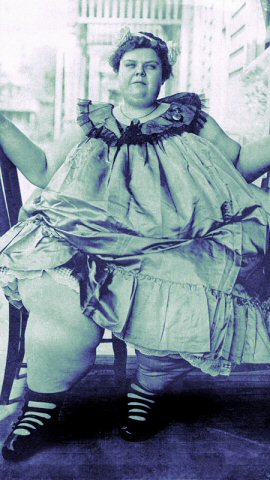12 October 2010
Lighten up to get heavy
by Kate Melville
 Exposure to light at night may lead to weight gain, even without changes in food intake and physical activity levels, according to new research conducted with mice. The researchers found that mice exposed to a relatively dim light at night over eight weeks had a body mass gain that was about 50 percent more than other mice that lived in a standard light-dark cycle.
Exposure to light at night may lead to weight gain, even without changes in food intake and physical activity levels, according to new research conducted with mice. The researchers found that mice exposed to a relatively dim light at night over eight weeks had a body mass gain that was about 50 percent more than other mice that lived in a standard light-dark cycle.
"Although there were no differences in activity levels or daily consumption of food, the mice that lived with light at night were getting fatter than the others," said Ohio State University's Laura Fonken, lead author of the study. If the results are confirmed in humans, it would suggest that late-night eating might be a particular risk factor for obesity.
The mice were housed in one of three conditions: 24 hours of constant light, a standard light-dark cycle (16 hours of light at 150 lux, 8 hours of dark), or 16 hours of daylight and 8 hours of dim light (about 5 lux of light).
The results showed that, compared to mice in the standard light-dark cycle, those in dim light at night showed significantly higher increases in body mass, beginning in the first week of the study and continuing throughout.
By the end of the experiment, the light-at-night mice had gained about 12 grams of body mass, compared to 8 grams for those in the standard light-dark cycle. The dim light-at-night mice also showed higher levels of epididymal fat, and impaired glucose tolerance - a marker of pre-diabetes.
Fonken, reporting her findings in the Proceedings of the National Academy of Sciences, believes that when the food is eaten may be the cause of the weight gain. In one experiment, mice exposed to light at night - but that had food availability restricted to normal eating times - gained no more weight than did mice in a normal light-dark cycle.
"When we restricted their food intake to times when they would normally eat, we didn't see the weight gain," Fonken said. "This further adds to the evidence that the timing of eating is critical to weight gain."
Overall, the findings show another possible reason for the obesity epidemic in Western countries. "Light at night is an environmental factor that may be contributing to the obesity epidemic in ways that people don't expect," said co-researcher Randy Nelson. "For example, other studies have identified prolonged computer use and television viewing as obesity risk factors, but have focused on how they are associated with a lack of physical activity. It may be that people who use the computer and watch the TV a lot at night may be eating at the wrong times, disrupting their metabolism. This environmental factor may explain why some people who maintain good energy balance still gain weight."
Related:
Bright light at night carcinogenic
Computer Games Zap Melatonin
Source: Ohio State University
